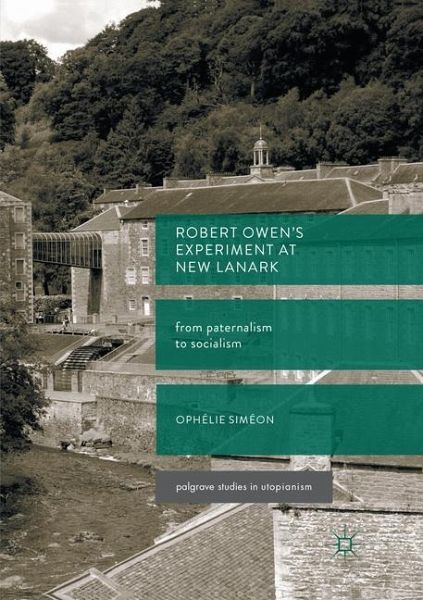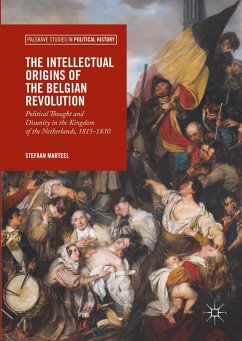
Robert Owen's Experiment at New Lanark
From Paternalism to Socialism
Versandkostenfrei!
Versandfertig in 6-10 Tagen
65,99 €
inkl. MwSt.
Weitere Ausgaben:

PAYBACK Punkte
33 °P sammeln!
This book provides an account of how, in the years 1800-1825, enlightened entrepreneur and budding reformer Robert Owen used his cotton mill village of New Lanark, Scotland, as a test-bed for a set of political intuitions which would later form the bedrock of early socialism in Britain. Drawing from previously unpublished archival sources, this study shows that New Lanark was not merely on the receiving end of Owen's innovative brand of industrial paternalism, but also acted as a major source of inspiration for many aspects of his social system, including his desire to remodel society along co...
This book provides an account of how, in the years 1800-1825, enlightened entrepreneur and budding reformer Robert Owen used his cotton mill village of New Lanark, Scotland, as a test-bed for a set of political intuitions which would later form the bedrock of early socialism in Britain. Drawing from previously unpublished archival sources, this study shows that New Lanark was not merely on the receiving end of Owen's innovative brand of industrial paternalism, but also acted as a major source of inspiration for many aspects of his social system, including his desire to remodel society along communitarian lines. This book therefore reaffirms the centrality of New Lanark as the cradle of socialism in Britain, and provides a contextualised, social history of Owen's ideas, tracing direct continuities between his early years as a paternalistic businessman, and his later career as a radical political leader. In doing so, it eschews the myth of New Lanark as a unidimensional 'model' village and addresses the ambiguities of Owen's journey from paternalism to socialism.












